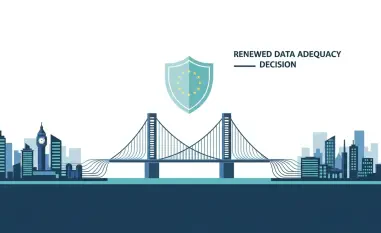In an era where digital security is paramount, the staggering breach at Capita, a major UK outsourcing giant, in 2023, which affected nearly 6.6 million individuals, stands as a chilling reminder of the vulnerabilities lurking in large-scale data handling. This incident, culminating in a £14 million fine from the Information Commissioner’s Office (ICO), has sparked intense debate across industries about cybersecurity preparedness. With sensitive information such as pension records and financial data exposed through a ransomware attack by the Black Basta group, the repercussions have rippled through public trust and corporate accountability. This roundup gathers diverse perspectives from industry leaders, cybersecurity analysts, and regulatory voices to dissect what went wrong, explore varying opinions on the fallout, and distill actionable insights for organizations aiming to avoid a similar fate.
Unpacking the Incident: What Happened at Capita?
The foundation of this breach lies in a ransomware attack initiated when an employee unknowingly downloaded malware, triggering a high-priority alert that went unaddressed for 58 hours. This delay allowed attackers to escalate privileges and deploy ransomware across Capita’s network, locking out employees and compromising data for over half of Capita Pension Solutions’ 600 clients. Industry observers have noted that such a prolonged response time, far exceeding the standard one-hour target, points to deep-rooted operational flaws in a company managing billions in government contracts for entities like the NHS.
Analysts from the cybersecurity sector have expressed concern over how a firm of Capita’s stature, entrusted with critical public sector data, could exhibit such lapses. Some argue that the incident reflects a broader underestimation of cyber threats among outsourcing giants, where scale often breeds complacency. Others highlight that the breach’s scale—impacting 6.6 million individuals—has amplified public and regulatory scrutiny, setting a precedent for how similar cases might be handled in the coming years.
A contrasting viewpoint from technology consultants suggests that while Capita’s failures are undeniable, the sophistication of groups like Black Basta reveals an escalating challenge that even well-prepared organizations struggle to counter. This perspective emphasizes the need for continuous adaptation rather than solely blaming internal oversight. The consensus, however, remains that preventable errors played a significant role in the breach’s severity, prompting a closer look at specific security shortcomings.
Diving into Cybersecurity Failures: Expert Critiques
Anatomy of a Preventable Attack
Cybersecurity specialists dissecting the breach point to the initial malware download as a common entry point, but the 58-hour delay in isolating the compromised device stands out as a critical failure. Reports indicate that this lag allowed attackers to move laterally across systems, ultimately deploying ransomware nine days later. Many in the field argue that a faster response could have contained the damage, underscoring the importance of real-time threat detection and action.
Further analysis reveals systemic issues, such as the absence of admin account tiering, which enabled privilege escalation. Experts in data security stress that this oversight is a fundamental error, often overlooked in large organizations where complex systems can obscure basic safeguards. The ICO’s findings align with this critique, noting that Capita’s response time starkly contrasted with industry benchmarks, raising questions about the prioritization of security protocols.
A differing opinion from some IT risk managers suggests that while the delay was egregious, it may reflect under-resourcing rather than outright negligence. They argue that many firms face similar constraints in balancing operational demands with security investments. This viewpoint fuels a broader debate on whether such incidents stem from isolated missteps or a pervasive lack of accountability in the sector.
Gaps in Security Infrastructure and Oversight
Industry watchdogs have highlighted Capita’s understaffed Security Operations Center (SOC) as a glaring weakness, with minimal personnel unable to handle the volume of alerts effectively. Additionally, systems holding millions of records underwent only one penetration test, and results were not shared organization-wide, leaving vulnerabilities unpatched. Security consultants argue that such limited testing is inadequate for an entity of Capita’s scale, especially given the sensitive nature of the data involved.
The real-world impact, including the exposure of pension and financial data across 325 clients, has drawn sharp criticism from data protection advocates. They contend that Capita’s failure to implement robust risk management practices endangered not just individuals but also the integrity of public sector operations. This perspective calls for stricter oversight of companies handling critical government contracts, emphasizing that size should not exempt accountability.
On the other hand, some corporate defense analysts suggest that while Capita’s infrastructure gaps are evident, the cost of comprehensive testing and staffing can be prohibitive, especially in competitive outsourcing markets. They propose that industry-wide standards and shared resources could help bridge these gaps, rather than expecting individual firms to bear the full burden. This nuanced take highlights the tension between ideal security measures and practical constraints.
Evolving Cyber Threats and Industry Challenges
The sophistication of ransomware groups like Black Basta has been a focal point for cybersecurity researchers, who warn that static defenses are no longer sufficient against such adaptive threats. They advocate for dynamic strategies, including machine learning-driven threat detection, to keep pace with evolving attack methods. Capita’s breach, in their view, serves as a wake-up call for industries reliant on digital infrastructure to rethink traditional security models.
Regional challenges in the UK, where public sector data handlers face heightened scrutiny, add another layer of complexity, according to policy analysts. They note that regulatory expectations are shifting, with a push for preemptive measures over reactive penalties. This trend suggests that global standards may soon align with stricter UK guidelines, placing additional pressure on organizations to fortify their systems proactively.
A counterargument from some tech industry leaders posits that while evolving threats are a concern, the assumption of inherent security in large organizations is a myth that Capita’s case debunks. They stress that vulnerabilities are universal, regardless of a company’s size or resources, and urge a cultural shift toward viewing cybersecurity as an ongoing process rather than a one-time investment. This insight reframes the discussion around shared responsibility across all sectors.
Regulatory Scrutiny and Public Fallout
The ICO’s decision to impose a £14 million fine, reduced from an initial £45 million due to Capita’s post-breach improvements, has sparked varied reactions among regulatory experts. Many commend the balance struck between punishment and recognition of corrective actions, suggesting that this approach incentivizes companies to invest in remediation. The fine’s magnitude still sends a strong message about the consequences of neglecting data protection obligations.
Comparisons to other UK data breaches reveal a pattern of increasing penalties, as noted by compliance officers, who point to growing public anxiety over data security. They argue that trust erosion, as highlighted by regulatory statements, is a long-term cost that fines alone cannot address. This perspective underscores the societal impact of such incidents, beyond immediate financial penalties, and calls for greater transparency in corporate practices.
A differing take from legal analysts speculates that while the reduced fine reflects leniency for cooperation, future cases might see stricter initial penalties to deter complacency. They predict a shift toward mandatory cybersecurity benchmarks, ensuring accountability is embedded in corporate frameworks. This forward-looking analysis suggests that regulatory responses will continue to evolve, shaping how organizations prioritize data protection in the years ahead.
Key Lessons: Collective Wisdom for Prevention
Summarizing insights from various stakeholders, the critical failures at Capita—delayed responses, understaffing, and inadequate testing—emerge as cautionary tales for all data handlers. Cybersecurity trainers emphasize actionable steps like enforcing least privilege principles to curb lateral movement by attackers. They also advocate for enhanced alert monitoring to ensure swift responses, a direct lesson from Capita’s 58-hour delay.
Risk management consultants offer complementary advice, urging organizations to invest in robust security controls and conduct regular, organization-wide penetration testing. Sharing test results across departments, they argue, is essential to address vulnerabilities comprehensively. This recommendation tackles one of Capita’s key oversights, where isolated testing failed to protect interconnected systems.
Additionally, corporate governance experts stress the importance of clarifying data protection roles between controllers and processors to avoid accountability gaps. Fostering a culture of vigilance, they suggest, requires top-down commitment to cybersecurity as a core priority. These combined insights provide a practical roadmap for organizations aiming to strengthen their defenses against similar breaches.
The Broader Implications: Data Protection in Focus
Reflecting on the diverse opinions, a common thread emerges: Capita’s breach exposed not just individual failings but systemic challenges in safeguarding data during a digital age. Industry leaders and analysts agree that the profound implications—from personal distress to trust deficits—demand a reevaluation of how large entities approach security. The ICO’s push for proactive prevention resonates across discussions, highlighting a shared urgency to adapt to growing cyber threats.
Looking back, the incident and the £14 million fine served as a pivotal moment that forced organizations to confront their vulnerabilities. The actionable next step for companies was clear: prioritize comprehensive security frameworks by integrating lessons like least privilege access and robust testing into daily operations. Beyond internal changes, engaging with regulatory bodies to align on evolving standards became essential to prevent future lapses.
As a final consideration, the dialogue around Capita’s case pointed to the value of industry collaboration in sharing best practices and resources to combat cyber threats collectively. Exploring platforms for knowledge exchange and staying updated on regulatory shifts offered a proactive path forward. This focus on collective resilience and continuous improvement marked a significant shift in how data protection was perceived, ensuring that the lessons from 2023 remained a guiding force for years to come.













